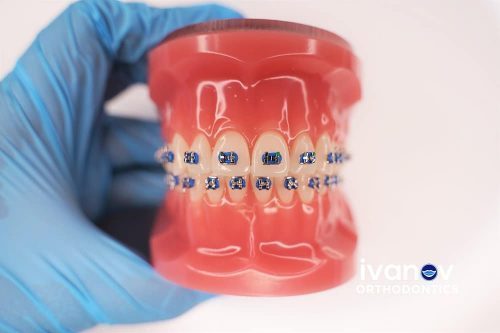What Is The Work Of A Permanent Retainer?
A permanent retainer, also known as a fixed bonded retainer, is a dental appliance that holds the teeth in their current positions. Orthodontists advise using retainers after braces treatment to maintain the results and stop the teeth from shifting back to their pre-treatment positions. An orthodontic specialist of Florida ties a metal wire to the back teeth to create the patient's permanent retainer. The wire often rests in front of four to six teeth, which may affect the upper teeth, the lower teeth, or both.

Orthodontists generally place permanent retainers behind the lower teeth because they are less likely to break there than on the top teeth. Orthodontist Hollywood usually fits patients with permanent retainers as soon as we remove the braces. Depending on how well someone takes care of their permanent retainer, they may wear it for up to 20 years.
Reasons to get a permanent retainer?
In the opinion of certain orthodontists, permanent retainers perform better than detachable ones. For instance, a study indicated that 87% of orthodontists favored permanent retention. Permanent retainers also eliminate the need for the wearer to remember to put them in or take them out. For people who need to use detachable retainers, this can be helpful. A permanent retainer might be more beneficial for people who suffer from memory or movement problems.
How to clean and maintain permanent retainers?
According to the best orthodontist near me, you must clean and maintain permanent retainers to avoid damage and breakage. Good dental hygiene is also crucial to prevent food from becoming stuck behind the wires. People must brush the area around a permanent retainer at least twice daily to maintain it. While performing this, the toothbrush's bristles must enter the space between the permanent retainer and the teeth. If using a standard toothbrush proves challenging, consumers can purchase tiny interdental brushes that can fit into small spaces.
Additionally, it's crucial to floss daily at least one inch around the permanent retainer. This procedure might present some difficulties. Some people discover that floss picks or floss threaders are beneficial, and another option is water flossing. One should inquire about the recommendations from the North Miami Beach orthodontist.

What are the drawbacks of permanent retainers?
The following are some factors to think about and possible downsides of permanent retainers:
- Applying for a permanent retainer could take a while and be unpleasant. A retainer's bonding to your teeth can occasionally take up to an hour. To acquire a detachable retainer, you must take a fast impression so that your orthodontist can utilize it to create one that suits your mouth.
- A permanent retainer necessitates extra work when it comes to flossing and brushing. If you don't spend time cleaning around your permanent retainer, your risk of cavities and gum disease may rise.
- Constantly having a metal thing in your mouth can be painful. The wire can irritate your tongue, and your tongue could become sore or itchy if the bond separates or the wire breaks.
Conclusion
The above-given article will help you learn some beneficial and valuable aspects regarding permanent retainers. For a deeper dive into permanent retainers, please visit ivanovortho.com.
Article Source : https://www.wellbeingcares.com/what-is-the-work-of-a-permanent-retainer/

Comments
Post a Comment